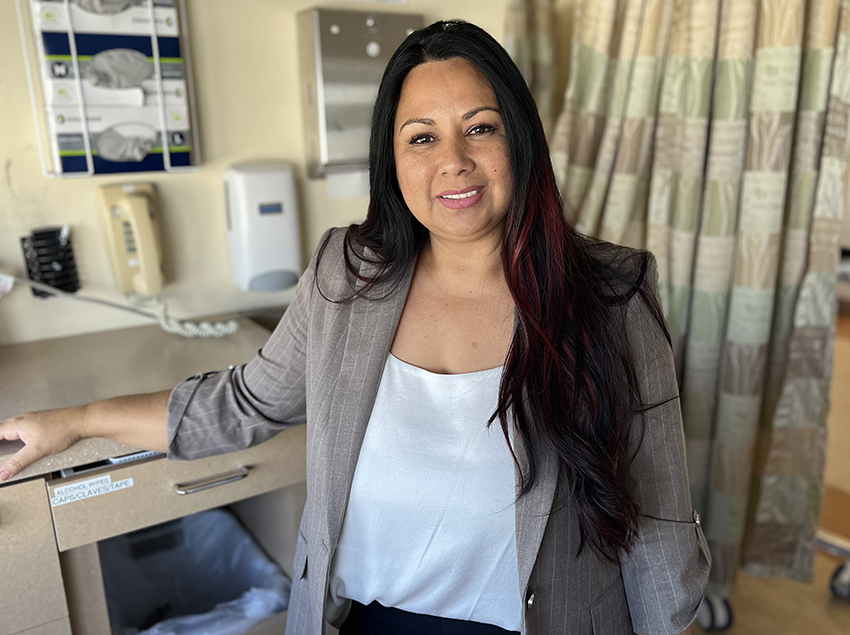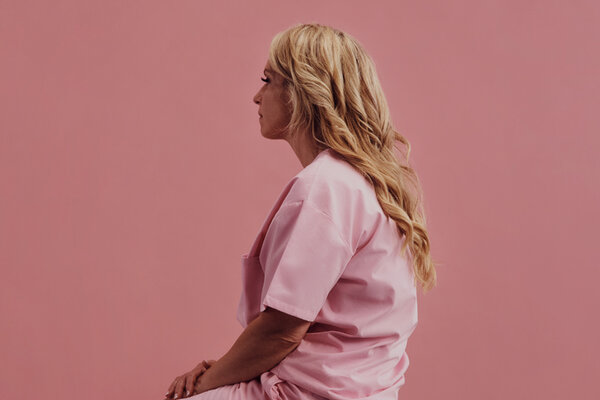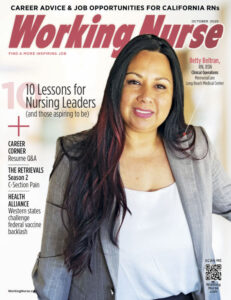My Specialty
Clinical Operations Manager, Betty Beltran, MemorialCare Long Beach Medical Center
Ensuring that high-acuity patients are getting the care they need

Betty Beltran, RN, BSN Clinical Operations Manager
Adult Med-Surg-Neuro-Trauma ICU and SDU
MemorialCare Long Beach Medical Center
When did you first consider becoming a nurse?
My love of nursing goes back to high school. After I graduated, I worked as a CNA at a nursing home while going to college. I shadowed the nurses, and knew that I wanted to go into nursing.
I did my preceptorship here at Long Beach Medical Center. At a job fair, the ICU manager really inspired me. After graduation, I was accepted into our new grad ICU residency program, which shaped me into a confident, compassionate ICU nurse. I’ve been a nurse now for 22 years.
You immigrated from El Salvador at the age of 12. How did that experience shape your role as a nurse?
Being an immigrant throws you into unfamiliar environments where you may not speak the language and may lack community or family support. That’s not easy at any age. Being an immigrant has made me a better nurse and manager. It gives me greater empathy in my interactions with our patients, especially since so many are immigrants.
What moves you about working in the ICU?
We have an amazing interdisciplinary team, all working together with the single goal of getting our patients back to as close to normal function as possible. That unity and collaboration is very fulfilling.
Tell me about the units you manage.
Our hospital is a Level II trauma center and stroke-certified facility, and we specialize in neurological and traumatic conditions. Our ICU is very large and complex, with 43 beds. I manage the adult med-surg-neuro-trauma ICU and stepdown unit, overseeing 250 employees, including 179 nurses.
We treat post-surgical patients as well as motor vehicle accidents, gunshot wounds, hemorrhagic and ischemic strokes, respiratory failure, sepsis — anything high-acuity. Our step-down unit helps us transition patients who are still too sick to go to a regular floor, but are stable without ICU-level care.
What are your day-to-day responsibilities?
My role is largely oversight and support: ensuring clear, logical patient flow, and making sure patients are receiving the correct levels of care, and are stepped down appropriately until they’re ready to be discharged. I’m also responsible for quality initiatives and metrics, safety action plans, reviewing incident reports, and performing root cause analyses to better understand where things go wrong and where we can do better. I also make sure we’re staffed properly, have the equipment we need, and remain aligned with the organization’s mission.
What characteristics do nurses need to be successful in this role?
I obviously first want to see clinical expertise: Our patients’ lives depend on us, so our nurses need to know what they’re doing and be able to make fast life-saving decisions.
This is a high-stress environment, so emotional strength and the ability to stay calm and focused during a code are crucial. No matter how bad things get, the nurse still needs to be able to support patients and families while being clinically astute.
I also look for someone who is focused on teamwork and collaboration. We need nurses who are comfortable actively participating in interdisciplinary meetings, and have clear, high-level communication skills.
Is there a patient story that illustrates the care provided by your unit?
I remember a patient who was brought in with a massive ischemic stroke. I went down to the ER, admitted him, rushed him to CT, and called neuro, who arrived within minutes. We did everything in our power to stabilize him. He stayed in our ICU for about 10 days.
Eventually, we were able to extubate him and transfer him to stepdown. Once he made it through rehab, he was able to walk out of the hospital on his own and return home with minimal deficits. That is our purpose: We intervened quickly and got him the timely treatment he needed, and he was able to have another chance at life.
You experienced a high-risk pregnancy with triplets. What was it like being on the other side of the stethoscope?
I was hospitalized for an entire month in our facility’s high-risk unit. The experience made me appreciate just how vulnerable patients can feel, and how the smallest gestures from the nurses and staff can mean so much.
Do you have professional goals you’d like to share?
Yes, I want to go back to school for my MSN in healthcare administration.
KEITH CARLSON, RN, BSN, NC-BC, has worked as a nurse since 1996 and offers expert professional coaching at www.nursekeith.com.
In this Article: Career Advice, Leadership and Management






